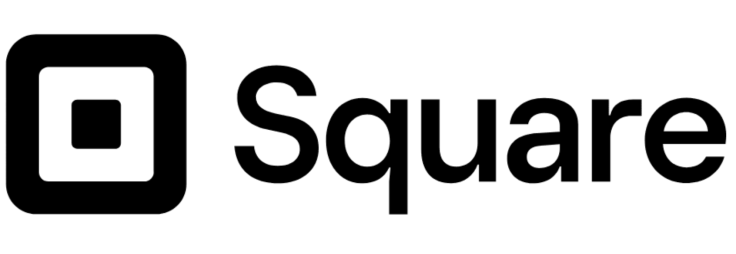As a result of the modern business landscape, brands continue to seek new ways to stay ahead of the curve. This is particularly evident among small and medium-scale businesses that need help to compete with more prominent brands regarding operational investments. Over time, technology has played a significant role in providing a leveled playing field for all brands to compete. One such tool is Point of Sale (POS) software.
POS solutions have gained rapid prominence, offering diverse features designed to streamline transactions, enhance customer experiences, and optimize overall operations. These systems have proven to be a game-changer across the business sphere, from modest establishments to thriving businesses. Hence, this comprehensive guide presents a streamlined list that explores the forefront of POS technology.
What is a POS Software
Point of Sale (POS) software is a specialized application businesses employ to facilitate and manage various aspects of their sales process. These processes include customer purchases, payment processing, and inventory management. POS systems serve as a central hub for processing all relevant in-person and online transactions in a business.
While transaction processing remains a crucial feature of POS systems, most modern options do more than just payments. These systems can also streamline a business’s daily workflow by combining tools like employee scheduling, customer loyalty program, and inventory tracking into one functional platform.
Identifying the Right POS System
POS software is crucial for businesses to efficiently manage their operations and gain valuable insights into their business performance. Choosing a system that aligns with specific business operations is equally important. But how can you identify the right POS system?
As we mentioned earlier, POS systems have gone beyond transaction processing. The best systems are now designed to streamline several other processes within a business. Here are some features every POS system should have.
● An ideal POS system helps businesses accept and process in-person and online payments.
● Aside from an impressive software platform, POS systems should also provide innovative hardware that helps to run a business. The hardware often includes a register, barcode scanner, cash drawer, card reader, and receipt printer.
● POS systems collect and analyze sales data, providing insights into market and customer trends that help to make informed business decisions.
● Some of the best POS systems include CRM features for tracking business operations and monitoring employees.
● Modern POS systems integrate with other business tools seamlessly. POS systems can foster easy data flow between multiple business elements by connecting with accounting software, e-commerce platforms, and other payment gateways.
● A significant priority of POS systems is security. As such, whichever POS system you choose should protect sensitive information and payment details through encryption and other security measures.
● Finally, modern POS software is designed with user-friendly interfaces to streamline the checkout process and reduce employee training time.
In summary, POS systems offer different functionalities that help to improve business performance. Hence, brands should identify their most important processes and choose systems that optimize them perfectly.
The Best POS Software of 2023
Technology advancements are a hallmark of modern society, shaping and transforming various aspects of our lives. As such, technology tends to evolve each year, often rapidly. POS systems conform to this trend, with 2023 bringing innovative changes to the features and functionalities of these systems. We analyze the leading providers, providing you with the best POS software in 2023.
1. Payanywhere
Payanywhere offers point of sale software, hardware, and management tools for businesses to power their operations, from accepting credit card payments to selling more to customers, and keeping employees organized. But how exactly does this solution help to streamline business operations?
With Payanywhere, businesses can accept contactless, EMV chip and magstripe cards, as well as offline payments. It also allows companies to get paid with one-time or recurring invoices online. A key feature of Payanywhere is its inventory tool, through which businesses can sell, track, and restock items.
Businesses that use this POS system can conveniently open a ticket, start a tab, and seamlessly close out transactions when customers are ready. You can further customize the customer experience by creating preset tip options, allowing customers to sign and tip directly on-screen or on a paper receipt.
Choose between the sleek Terminal theme for simplified payments or a robust Retail theme for inventory management, stock tracking, and Tickets & Tabs. Payanywhere’s online merchant portal, Payments Hub, is your online command center, granting access to a wealth of data and business management tools that extend beyond traditional POS capabilities. Functionalities of Payments Hub include setting up employees, building and tracking inventory, viewing real-time data, and generating detailed reports. Businesses can also take control of their online presence by managing their Google Business Profile through the integrated Reputation Management feature.
Payments Hub also gives businesses access to a Virtual Terminal, enabling you to accept payments without hardware. Ultimately, Payanywhere provides a comprehensive POS system that helps to elevate any business.

2. Shopify
While Shopify has gained prominence for its comprehensive e-commerce platform, it functions as a multifaceted brand offering a functional POS system. Shopify’s POS system is an exceptional platform that helps businesses to integrate their virtual and in-person sales channels, creating a cohesive retail experience for customers.
Shopify’s POSversatile functionalities make it an inclusive solution that can be adapted to various business models. However, it remains an ideal system for e-commerce businesses. Shopify provides quality software suitable for companies exploring omnichannel functionalities in unifying customer experience across various platforms.
With Shopify POS, businesses can simplify daily operations, increase sales with flexible shopping options, and reward customers through loyalty integrations.

3. Elementary POS
Elementary POS serves as your all-in-one business ecosystem, designed to streamline operations for restaurants, stores, and small business owners. This solution provides a platform for businesses to issue receipts, oversee sales data, plan shifts, and manage inventory, all from an Android phone or tablet.
Introduced in 2019, the idea behind Elementary POS was to provide an easy-to-use, affordable cash register solution for small businesses and restaurants. The “cash register” feature has remained its best-known capability, allowing companies to create accounts and issue receipts in minutes. However, it also features a virtual Back Office, a web application that oversees sales data, edit settings, report generation, and stock management. Live sales data syncs to the virtual office, allowing managers to generate reports on employee sales or specific dates. This office is accessible on Mac and iPhone devices too.
Elementary POS also fosters QR code remote ordering for customers, kitchen and customer displays, and e-mail support for assistance. What’s more? The cash register works without an internet connection, and sales data generated offline automatically syncs to the Office when the internet connection is regained. All these features and more can be explored for an affordable fee of $5.99 monthly.

4. Korona POS
KORONA POS is an innovative customizable cloud-based retail POS system by COMBASE USA. Aside from retail, this solution caters to quick-service and admissions industries, providing brands with unique features and integrations to serve as a central point for all daily business activities.
KORONA POS’s extensive features include inventory management, sales reporting, e-commerce integrations, multi-location support, modern payments, and theft prevention tools. Its robust back office, KORONA Studio, offers business managers remote access to custom tools and metrics. With these tools, businesses can facilitate critical business processes like automating inventory alerts, producing KPI reports, analyzing product performance, and more.
Furthermore, KORONA POS provides a user-friendly cashier and customer-facing terminal with various hardware choices for swift transactions. Each terminal has customizable screens and product updates occur in real-time. The software is also compatible with an array of credit card and mobile payment readers as well as credit card processors.
KORONA’s award-winning support team provides users with unlimited product demos and training through its free trial. Customer support is always available by phone, chat, and email at no extra cost. The software also features no extended contracts, processing agreements, additional fees, surcharges, or cancellation penalties. It also includes a 60-day money-back guarantee for all hardware purchases.”

5. Clover
Clover is a highly commendable choice for businesses, particularly those needing a POS system with comprehensive hardware features. It also provides a flexible pathway depending on business requirements. For instance, small-scale companies can start with a Clover GO card reader and upscale to a more comprehensive POS station as business operations increase.
Another advantage of Clover is how easy it is to set up and use. Straight out of the packaging, this system is primed for immediate application, seamlessly synchronizing with the Clover dashboard to improve its user experience further.
Clover empowers businesses with the capacity to direct business operations from any location. The Clover Go application streamlines several processes, including order creation, payment acceptance, and digital receipt dispatch, making it one of the best options, particularly for integrations.

6. Square
Like Shopify, Square also offers comprehensive POS software and hardware solutions that empower businesses to streamline and process their transactions seamlessly. Square POS focuses on improving operational efficiency across the restaurant and retail industries by effectively facilitating transactions and elevating customer experiences.
Aside from these sectors, Square’s versatile solution can also be helpful for businesses operating within service-based industries. This includes small-scale enterprises that can now explore a free POS plan. Companies that use this option process their payments through Square’s in-house platform. Furthermore, Square POS bases its pricing on business sales, making it a good choice for new brands with low sales volume.
Conclusion
The choice of POS software can be the decisive factor that propels your business towards seamless operations and heightened customer satisfaction. The options we’ve highlighted address diverse needs, from traditional businesses to e-commerce enterprises, offering a range of features that streamline transactions, manage inventory, and enhance business analytics.
POS systems are the future of business operations; however, whichever you choose should align perfectly with your goals and vision. Your brand deserves the best, and regarding POS software, the best is at your fingertips.







